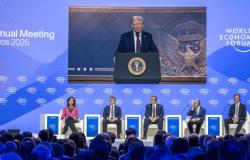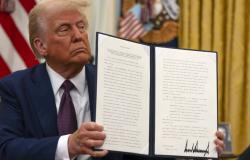Over the decades, the Organization of the Petroleum Exporting Countries (OPEC) has demonstrated its ability to influence world oil prices through its strategic production decisions. The cartel, led bySaudi Arabiahistorically maintains careful control over extraction volumes, adjusting its production according to targeted price objectives. This complex mechanism, comparable to a giant faucet that is opened or closed as needed, allows OPEC to keep control of the world prices of black gold.
The butterfly effect of a presidential statement
At the World Economic Forum in Davos, Donald Trump demanded that OPEC and Saudi Arabia “lower the cost of oil”. His intervention was accompanied by a sharp barb: “I am frankly surprised that they did not do it before the election. Not doing it wasn’t really a proof of love.”. This muscular intervention triggered a chain reaction on the financial markets. THE barrel of Brent plunged below the $79 mark, the West Texas Intermediatefell to 74 dollars. These abrupt movements illustrate the persistent influence of the former president’s statements on world stock markets, despite his temporary absence from power.
The American energy standoff
Trumpian energy policy outlines an America resolutely focused on the intensive exploitation of its fossil resources. By authorizing new drilling in Alaska and removing the environmental restrictions of his predecessor, Trump affirms his desire to transform UNITED STATES into an undisputed oil superpower. This strategy aims to fill national reserves while consolidating the American position on the global hydrocarbon market.
-A global pressure strategy
The presidential request goes beyond just the oil sector. Trump establishes a surprising link between the cost of oil and the resolution of the Ukrainian conflict, suggesting that a reduction in energy prices would automatically lead to peace. At the same time, he is calling for a widespread reduction in interest rates across the world, just before a crucial meeting of the US Federal Reserve.
Swiss





